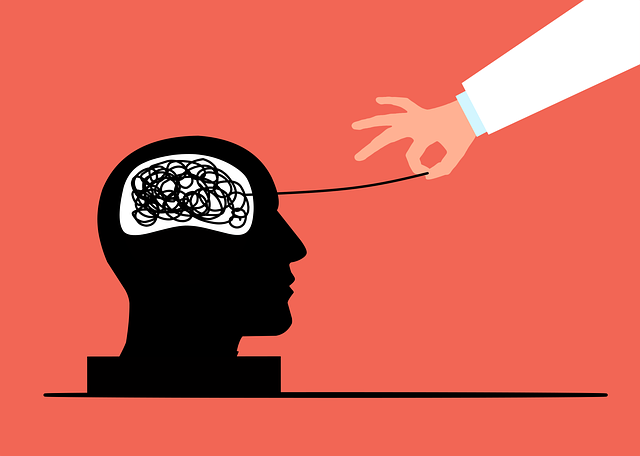Emotional well-being is crucial for daily life and relationships, but stress or trauma can disrupt it. Stress reduction therapy through regenerative approaches offers a holistic solution, focusing on emotional regulation and physical healing. Techniques like mindfulness, CBT, and sensory integration reduce stress hormones and symptoms. Incorporating cellular therapy and stem cell treatment addresses root causes of mental health issues. Accessing these therapies involves researching specialists, consulting healthcare providers, and creating a consistent daily practice.
Emotional well-being is fundamental to leading a fulfilling life, yet stress often leaves us feeling depleted. In response, regenerative therapies emerge as promising tools for stress reduction, offering novel approaches to mental health care. This article explores these emerging treatments, from understanding emotional well-being’s impact on daily life to key techniques in stress reduction therapy and the benefits of integrating these practices into mental health support. We’ll also guide you through practical steps to accessing and incorporating these therapeutic innovations.
- Understanding Emotional Well-being and its Impact on Daily Life
- The Rise of Regenerative Therapies for Stress Reduction
- Key Techniques in Stress Reduction Therapy
- Benefits of Incorporating Regenerative Therapies into Mental Health Care
- Practical Steps to Accessing and Integrating These Therapeutic Approaches
Understanding Emotional Well-being and its Impact on Daily Life

Emotional well-being is a vital aspect of overall health, influencing how individuals navigate their daily lives and interact with the world around them. It encompasses feelings of happiness, contentment, and balance, enabling people to cope with life’s challenges and maintain strong relationships. When emotional well-being is compromised, often due to prolonged stress or traumatic experiences, it can lead to significant disruptions in daily functioning.
Stress reduction therapy offers a powerful tool to address these issues by providing individuals with the necessary skills to manage and reduce stress levels. By focusing on emotional regulation, this type of therapy helps people identify and change negative thought patterns and behaviors, fostering a sense of calm and resilience. As a result, individuals can improve their overall quality of life, enhance their relationships, and effectively navigate the demands of modern living.
The Rise of Regenerative Therapies for Stress Reduction

In recent years, there’s been a growing interest in regenerative therapies as a means for stress reduction, marking a significant shift in mental health care. Traditional treatments often focus on managing symptoms, but regenerative approaches aim to restore and revitalize the mind and body, offering a more holistic solution to chronic stress. These innovative therapies harness the body’s inherent regenerative capabilities, promoting physical and psychological healing.
Regenerative therapies for stress reduction include various techniques such as mindfulness-based practices, which have been shown to reduce cortisol levels and enhance overall well-being. Additionally, advancements in fields like neurofeedback and sensory integration therapy provide targeted interventions to rewire brain function affected by prolonged stress. As research continues to evolve, these therapeutic methods hold promise for individuals seeking lasting relief from the burden of stress.
Key Techniques in Stress Reduction Therapy

Stress Reduction Therapy employs a range of powerful techniques tailored to calm the mind and restore emotional balance. One key method is mindfulness meditation, which encourages individuals to focus on the present moment, cultivating awareness and acceptance of thoughts and feelings without judgment. This practice has been shown to reduce stress hormones and lower blood pressure, promoting a sense of tranquility.
Another effective approach is cognitive behavioral therapy (CBT), where individuals learn to identify and challenge negative thought patterns contributing to stress. By reframing these thoughts and adopting healthier perspectives, CBT empowers people to manage their emotions more effectively. This therapy also incorporates various relaxation techniques, such as deep breathing exercises and progressive muscle relaxation, which help induce a state of calm and reduce the physical symptoms of stress.
Benefits of Incorporating Regenerative Therapies into Mental Health Care

Incorporating regenerative therapies into mental health care offers a promising avenue for enhancing emotional well-being and stress reduction. These innovative approaches, such as cellular therapy, stem cell treatment, and tissue regeneration, go beyond traditional talk therapy and medication by addressing the root causes of mental health issues. By stimulating the body’s natural healing mechanisms, these therapies can foster a profound sense of restoration and resilience.
Regenerative treatments have shown potential in alleviating symptoms of depression, anxiety, and post-traumatic stress disorder (PTSD). For instance, cellular therapy aims to optimize brain function and neuroplasticity by infusing certain cells that promote tissue repair. Stem cell treatment, on the other hand, can help rebuild damaged neural pathways, leading to improved mood regulation and reduced stress responses. Moreover, these therapies often complement conventional mental health practices, providing a comprehensive and holistic approach to care that many individuals find transformative.
Practical Steps to Accessing and Integrating These Therapeutic Approaches

Accessing and integrating regenerative therapies for emotional well-being requires a thoughtful, step-by-step approach. Begin by researching reputable sources and professionals specializing in these practices. Consult with healthcare providers to understand which modalities align best with your unique needs, as options may include art therapy, music therapy, or mindfulness practices combined with stress reduction therapy. Many therapists offer online sessions, making it easier than ever to access these services from the comfort of home.
Once you’ve identified suitable therapeutic approaches, create a structured routine. Integrate these practices into daily life, whether through dedicated time for meditation, regular art or music sessions, or incorporating mindfulness into mundane tasks. Consistency is key; commitment to a schedule will help sustain the benefits of regenerative therapies and support long-term emotional resilience and stress reduction.
Regenerative therapies offer a promising approach to supporting emotional well-being and stress reduction, providing individuals with effective tools to navigate life’s challenges. By integrating these innovative techniques into mental health care, we can enhance traditional treatments and cater to the diverse needs of those seeking improved mental and emotional health. Embracing regenerative practices enables us to foster resilience, promote healing, and ultimately, cultivate a more balanced and fulfilling life. With access to these therapeutic options becoming increasingly accessible, it’s an exciting time to explore and harness their potential for better stress reduction and overall well-being.
